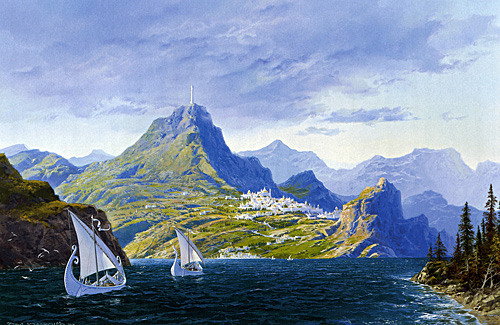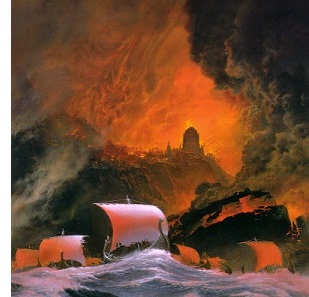izzy88
Active Member
I'm still relatively new to theism, and while I've found some very intelligent and logical answers to many of the questions I've had, this is one issue I don't see brought up much, and it's one I've yet to find a real answer for.
The Problem of Evil I have no issue reconciling; that's not what I'm asking about. If God is good and men are free, then it means we're free to choose to go against God and therefore against the good - which is evil.
God, being good, would have made all creation good, and everything that exists is doing exactly what God designed it to do because it cannot choose to do otherwise. But man is free like the rest of nature isn't, and so we can choose to go against nature - against God.
The issue I have is that when we look at nature, we may not find evil, but we find a whole lot of pain and suffering and death. It really is a dog eat dog world, survival of the fittest; animals rip apart other animals with their teeth and claws, they eat each other alive. Then you've got disease and illness, microbes and parasites which exist only to cause pain and suffering to other creatures.
From what I've read, the classic explanation given by the Christian Church is Original Sin. In Genesis, the disobedience of Adam and Eve not only gets them kicked out of paradise, but it says that their act of defiance is what brought death and suffering into the world - not just for themselves.
But today, we're about as certain as we can be that life was around long before mankind appeared, and it was just as brutal before we showed up as it is now. So the Original Sin explanation really doesn't cut it, anymore. We didn't create this "fallen" world through our sin, we were born into a fallen world - it was fallen from the very beginning.
Why?
Why did God design nature to operate this way? Why did he design animals to fight and kill each other? Why did he create disease? Why is there physical pain?
If anyone knows of any theological explanations for this problem, I'd love for you to share them. Otherwise I figure this should at least make for a good discussion topic.
The Problem of Evil I have no issue reconciling; that's not what I'm asking about. If God is good and men are free, then it means we're free to choose to go against God and therefore against the good - which is evil.
God, being good, would have made all creation good, and everything that exists is doing exactly what God designed it to do because it cannot choose to do otherwise. But man is free like the rest of nature isn't, and so we can choose to go against nature - against God.
The issue I have is that when we look at nature, we may not find evil, but we find a whole lot of pain and suffering and death. It really is a dog eat dog world, survival of the fittest; animals rip apart other animals with their teeth and claws, they eat each other alive. Then you've got disease and illness, microbes and parasites which exist only to cause pain and suffering to other creatures.
From what I've read, the classic explanation given by the Christian Church is Original Sin. In Genesis, the disobedience of Adam and Eve not only gets them kicked out of paradise, but it says that their act of defiance is what brought death and suffering into the world - not just for themselves.
But today, we're about as certain as we can be that life was around long before mankind appeared, and it was just as brutal before we showed up as it is now. So the Original Sin explanation really doesn't cut it, anymore. We didn't create this "fallen" world through our sin, we were born into a fallen world - it was fallen from the very beginning.
Why?
Why did God design nature to operate this way? Why did he design animals to fight and kill each other? Why did he create disease? Why is there physical pain?
If anyone knows of any theological explanations for this problem, I'd love for you to share them. Otherwise I figure this should at least make for a good discussion topic.


